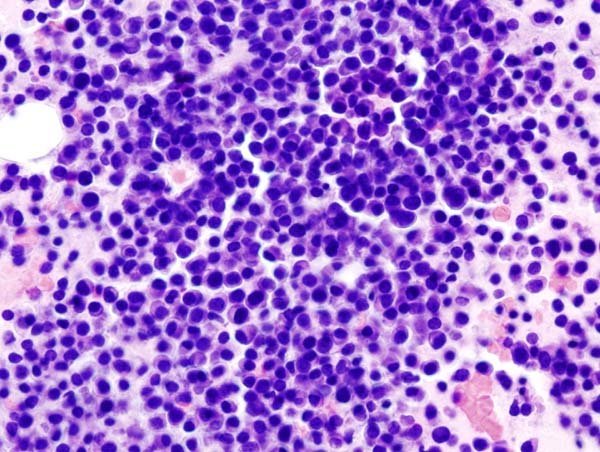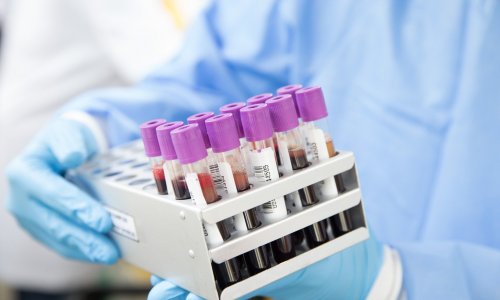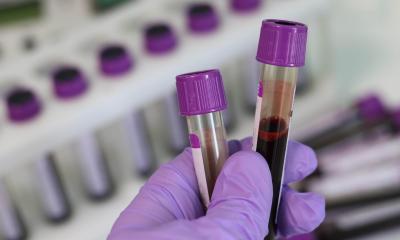
News • Rare cancer
A simple blood tests could improve diagnosis of myeloma
A pioneering study into myeloma, a rare cancer, could lead to General Practicianer (GPs) using simple blood tests to improve early diagnosis. The study investigated the best combination of blood tests that could be used to diagnose myeloma in GP practices.
Researchers investigated how useful a number of different measures were for indicating the presence of the myeloma, and suggested what combinations of these tests were sufficient to rule out the disease, and to diagnose it, saving the patient from the worry of specialist referral.
Blood tests of 2703 cases taken up to five years prior to diagnosis were analysed and compared with those of 12,157 patients without the cancer, matching cases with control patients of similar age amongst other relevant parameters. They demonstrated that a simple combination of two blood parameters could be enough to diagnose patients. Such blood tests are routinely conducted in GP surgeries.
Constantinos Koshiaris, lead author of the study, from Oxford University, said: "The combination of levels of haemoglobin, the oxygen carrier in the blood, and one of two inflammatory markers (erythrocyte sedimentation rate or plasma viscosity) are a sufficient test rule out myeloma. If abnormalities are detected in this test, it should lead to urgent urine protein tests which can help speed up diagnosis".
More timely treatment could significantly improve survival rates for this disease.
Willie Hamilton
Each year approximately 5,700 people are diagnosed with myeloma in the UK alone. It can lead to symptoms such as bone pain, fatigue and kidney failure. It has the longest diagnosis process of all common cancers, and a large number of patients are diagnosed after emergency care, over a third of which having had at least three primary care consultations.
"Ordinarily a GP will see a patient with myeloma every five years—and early diagnosis matters. More timely treatment could significantly improve survival rates for this disease. We report a simple way a GP can check patients presenting symptoms such as back, rib and chest pain, or recurrent chest infections, and determine whether they have myeloma or not," said Professor Willie Hamilton, of the University of Exeter Medical School, principal investigator on the study.
The authors also suggest the possibility of integrating a system in the electronic health record to alert clinicians to relevant symptoms or changes in blood parameters related to myeloma.
Source: University of Exeter
20.08.2018





